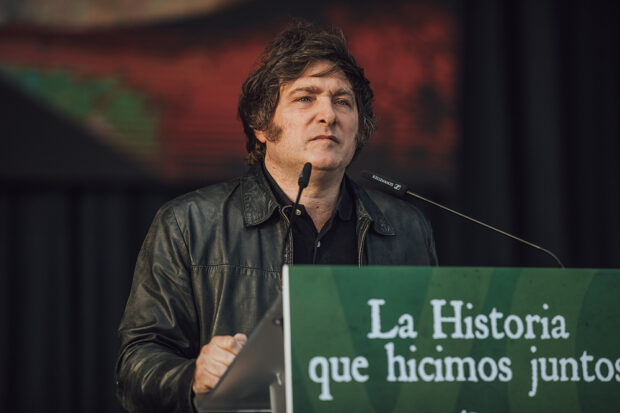
The electoral victory of Javier Milei in Argentina on Nov 19 sparked a feeling of enthusiasm among right-wing activists and demagogues such as Donald Trump, Elon Musk, Jair Bolsonaro (the former president of Brazil) and many others around the world. One wonders why and how a political victory in a far away, medium-sized country could produce such a wave of excitement.
Milei defeated the well-established political machine built by the peronismo over the past two decades, a machine that hasn’t worked well lately and has shown signs of wear and tear. Peronismo is a loose ideology attributed to Juan Peron, the popular president of Argentina from 1946 to 1955, who enacted several labor laws while controlling the unions for his political ambitions.
Milei reached out to the young people with promises of “real and drastic changes.” He jumped into the political arena thanks to the support of a media mogul who promoted him as a constant guest on radio and TV shows, where Milei expressed his virulent opinions, accompanied by his body movements and facial expressions. All of which contributed to his nickname El Loco (“the madman”). Sound familiar?
His political opinions, which he plans to implement as soon as he takes over the presidency of Argentina on Dec. 10, are nothing new: privatize everything the state owns, such as public radio and TV, education, oil. Eliminate all civil rights protections, unions and social welfare, including abortion rights. He also wants to derogate a partial rent control law, which some analysts predict could spark a massive eviction of people.
He plans to dollarize the economy and “bomb the central bank.”
His verbosity sounds out of control, and he doesn’t spare victims—even Pope Francis was a target of his insults.
Milei wants to pardon all—or most—military officers condemned for crimes against humanity committed during the last military dictatorship, which controlled the country from 1976 to 1983 with Washington’s strong support.
Perhaps the combination of all these ingredients makes him a popular right-wing hero, the underdog who defeated the political machine, or the establishment that looked untouchable before the election. A machine that many believe is responsible for the 40% poverty in a country once the envy of Latin America.
Although Argentina led the region in promoting civil rights protections for minorities such as LGBTQ+, and passed a comprehensive abortion law in the last decade, its history is plagued with military coups and ruthless leaders that could explain, at least in part, the triumph of Milei—who won with a margin of more than 10 points over his rival, Sergio Massa, the official candidate of the party in power and currently the Minister of Economy.
Milei’s main support—besides right-wing zealots and CEOs—comes from young voters, and, ironically, from unemployed or part-time employees who are desperately seeking a change that could improve their lives.
But looking at the new president of Argentina’s agenda, one wonders how long that support will last.

